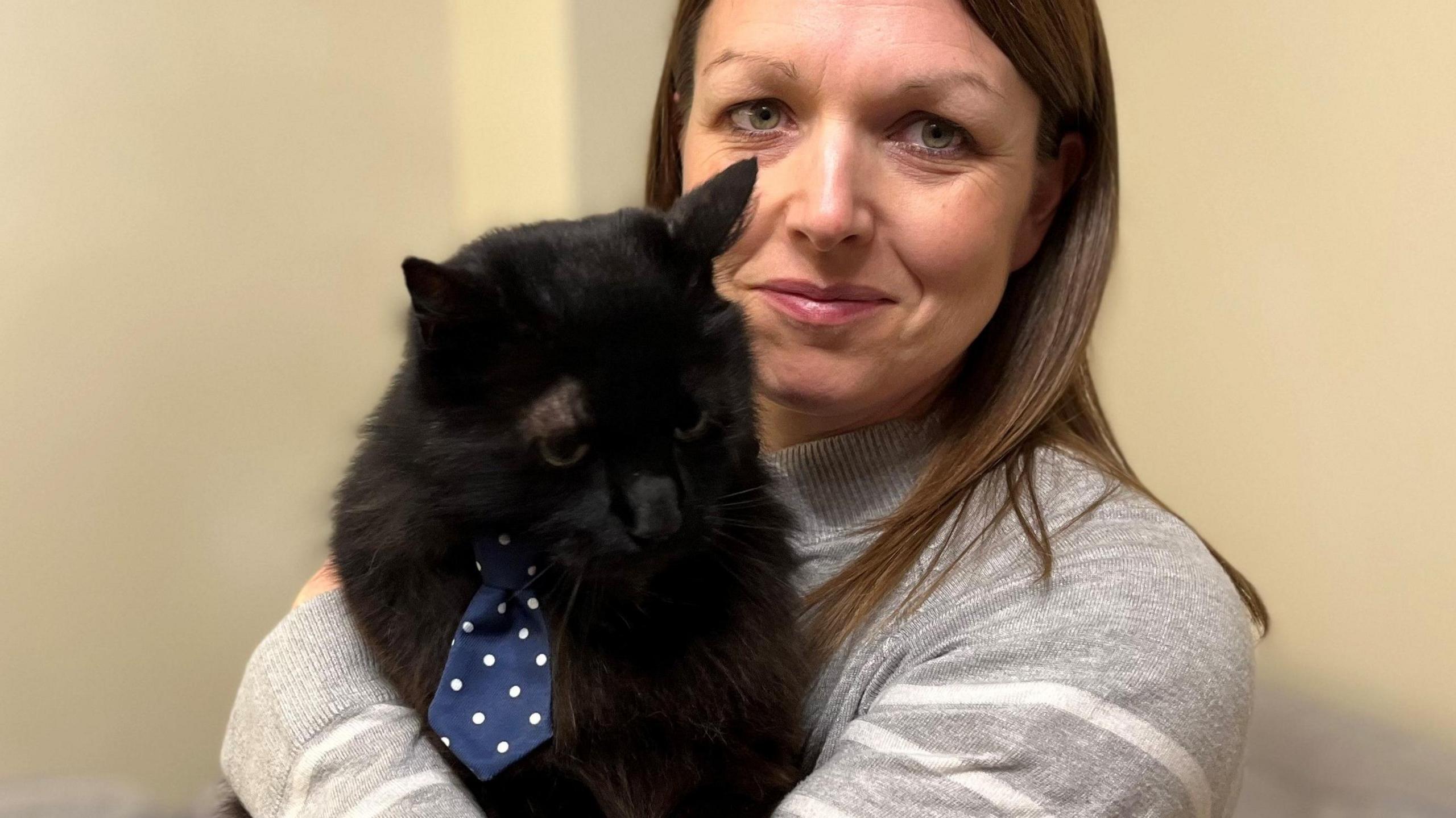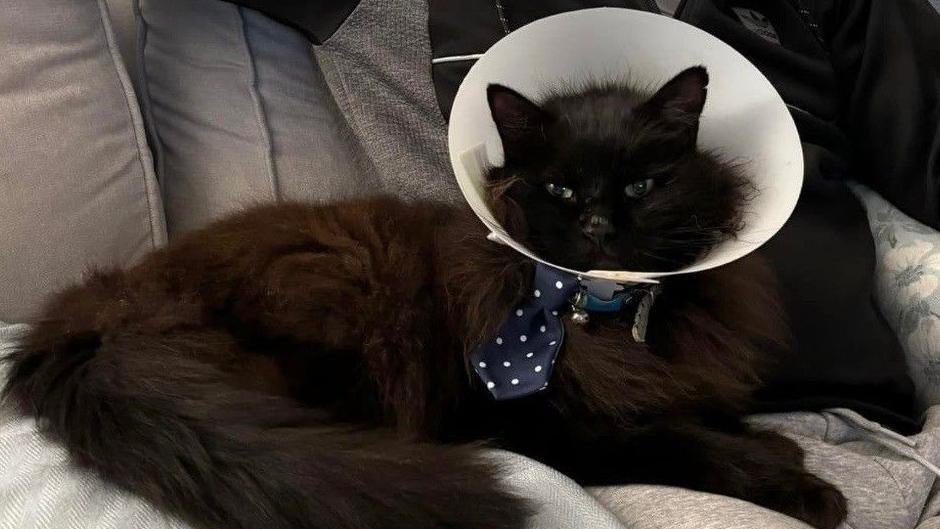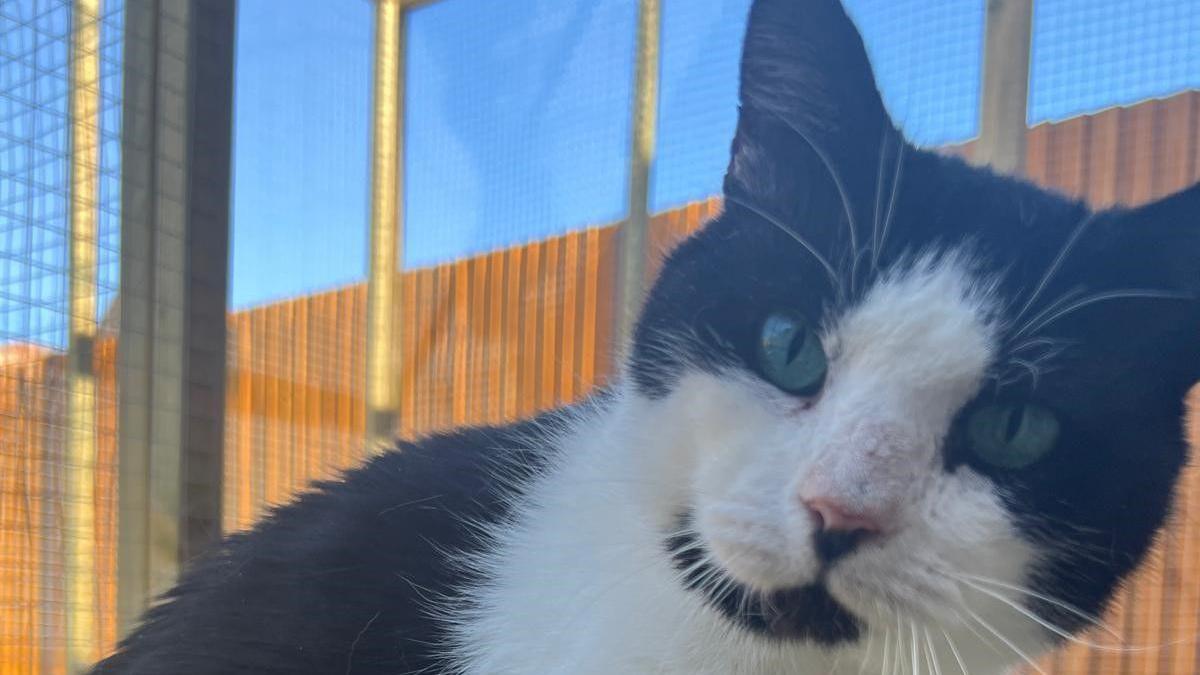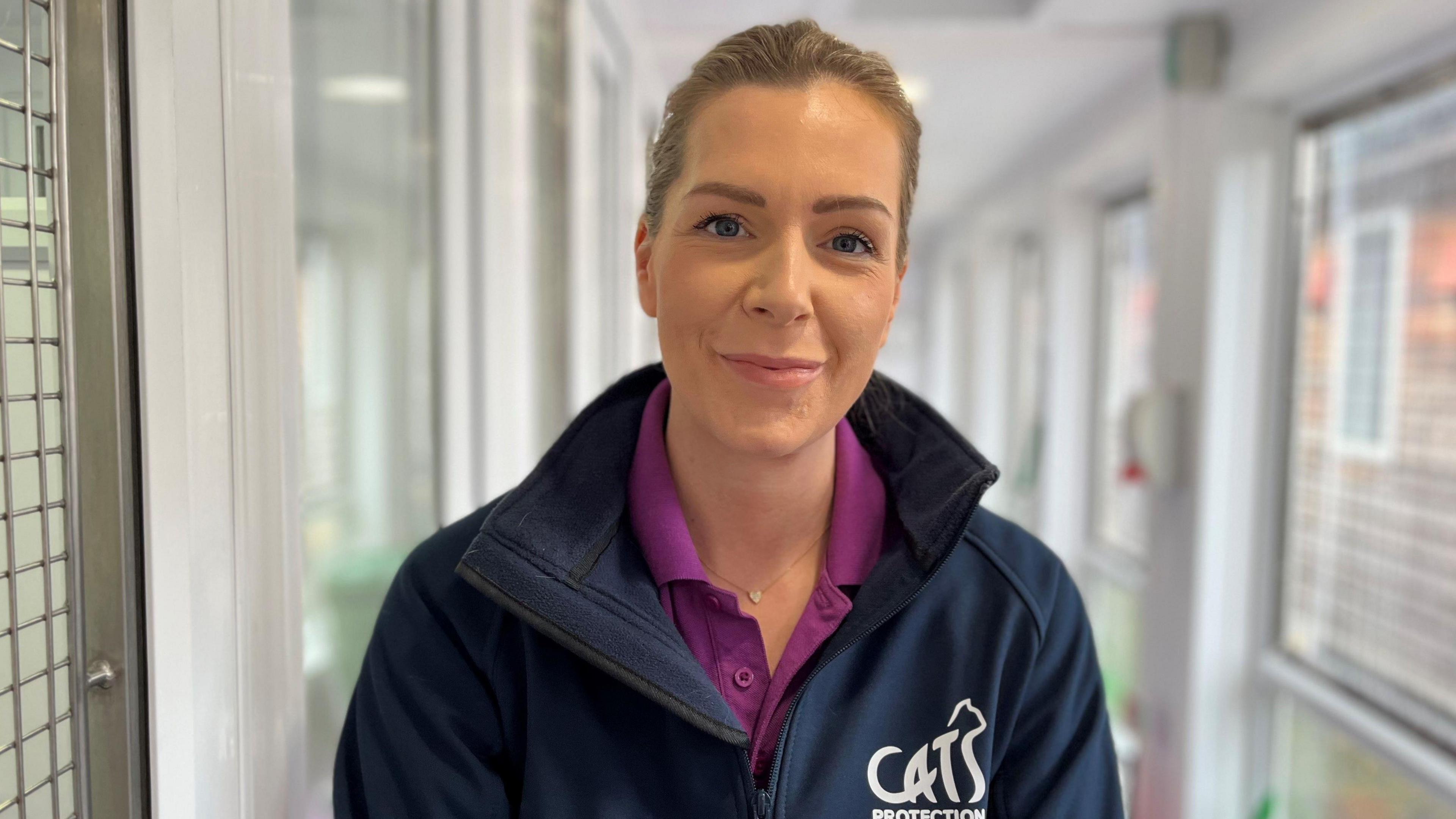'People don't realise cats can get diabetes'

Emma Damen's cat Woody was diagnosed with diabetes in 2023
- Published
"Looking after a diabetic cat is a full-time job."
This is something Emma Damen discovered after her pet, Woody, was diagnosed with the condition in 2023.
The 44-year-old said she knew something was wrong when he was continually drinking and losing a lot of weight.
"He lost all the muscles in his back legs - it was horrible to see - his legs were shaking," Mrs Damen, from Andover in Hampshire, said.
"He had a blood test, and the vets called us back to say he had diabetes. I had never heard of diabetes in cats."

Woody lost a lot of weight when he was first diagnosed
According to charities, diabetes can affect up to one in 100 cats.
Cat diabetes is like Type 2 diabetes in humans, where the body becomes resistant to insulin or fails to produce it.
Symptoms include weight loss, urinating more and increased appetite an thirst.
Diabetic cats need either insulin injections or medicines to control their condition.
Daisy, who is 13, receives her diabetes medicine from charity Cats Protection
Mrs Damen said she was unable to insure Woody so could not claim back the cost of his medication, special food and blood tests, which add up to £80 a month.
"I don't think anyone realises the impact it does have on your life," she said.
"I have to inject him twice a day at specific times otherwise he will be poorly. I have my alarm on my smartwatch, so I don't miss it.
"I have not had a lie-in since May 2023 when he was first diagnosed. It's like having three children. But he is family so I wouldn't have it any other way."

Buddy has a purpose-built "catio" in the garden
Stacey Goddard, from Bishops Waltham, Hampshire, rehomed rescue cat Buddy in 2017.
A year later he was diagnosed with diabetes which she said came as a "huge shock".
"We noticed he was getting very lethargic," she said.
"He was sleeping literally all day, not really eating; we had to wake him up to feed him.
"It was touch and go when Buddy was first diagnosed because we took a while to take him to the vet, because we thought he was just having a tired day, but you need to be on it because it can go just like that."
Buddy was put on insulin straightaway.
He has injections twice a day, wears a monitor that measures sugar and has a strict diet.
Ms Goddard also built a "catio" in her garden to allow Buddy to be outdoors but remain close by.
"We can't run the risk of letting him out normally and him not coming back," she said.

Elle Hatam from Cats Protection said a lot of people did not know cats could get diabetes
One of the big risk factors for cats getting diabetes is obesity.
The charity Cats Protection in Thatcham, Berkshire, has seen an increase in obese cats since the Covid-19 pandemic.
"I suppose that's because people were home with their cats a lot more, probably giving tit bits and maybe giving them an extra meal," said Elle Hatam, a veterinary nurse for the charity.
"We did find there was definitely a link there with cats becoming more overweight.
"Although there are no studies at the moment, it's probably likely that more cats are getting diabetes because more cats are overweight."
The charity urged anyone concerned about their cat's health to get them checked out because if diabetes is left it can be fatal in cats.
Ms Hatam said: "We want to raise awareness because a lot of people don't think cats can get diabetes.
"Even though there's no cure for diabetes; with early aggressive treatment we have seen cats go into remission.
"Remission means they can stabilise glucose themselves but you need to be mindful and monitor them, because they may need insulin or medicine again."
You can follow BBC Hampshire & Isle of Wight on Facebook, external, X (Twitter), external, or Instagram, external.